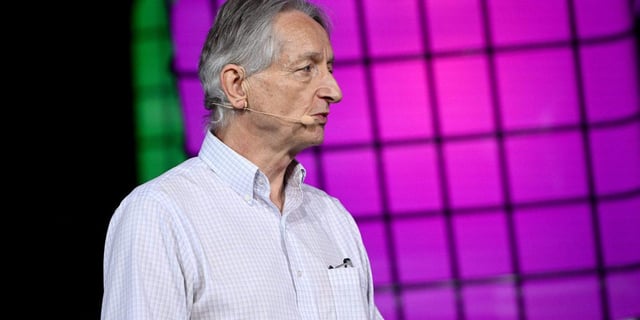Artificial Intelligence: The Cold Economic Truth Behind the Hype
The AI revolution is here, and it’s being bankrolled by tech giants pouring astronomical sums into its development. But what’s the end game? According to Geoffrey Hinton, often dubbed the “Godfather of AI,” the harsh reality is that these massive investments won’t yield the profits expected unless human labor is substantially replaced. This raises critical questions about the future of work, the potential for economic disruption, and the ethical considerations surrounding AI development.
The Economic Imperative: Profitability Through Automation
Tech companies aren’t philanthropic organizations; they exist to generate profit. Hinton’s statement underscores the fundamental economic principle driving AI development: automation. While AI can enhance existing processes and create new opportunities, the significant return on investment these companies are seeking likely requires a fundamental shift away from reliance on human employees.
Consider customer service. Companies are already implementing AI-powered chatbots to handle basic inquiries, reducing the need for human agents. As AI becomes more sophisticated, these chatbots can handle increasingly complex issues, further shrinking the customer service workforce. Similarly, in areas like data analysis, content creation, and even software development, AI tools are rapidly improving, potentially displacing human workers. The allure of 24/7 availability, reduced overhead, and increased efficiency are powerful incentives for businesses to embrace AI-driven automation.
The core of Hinton’s argument lies in scale. The sheer amount of money being invested in AI development necessitates a massive return. Incremental improvements and assistive tools won’t cut it. To justify these investments, AI must demonstrably and substantially reduce operational costs, and the most significant cost for many businesses is human labor.
The Looming Job Displacement Crisis: A Brave New World?
The potential for widespread job displacement is perhaps the most unsettling aspect of Hinton’s prediction. While some argue that AI will create new jobs to replace those lost, history suggests that technological advancements don’t always result in a net gain in employment. The skills required for these new AI-related jobs might not align with the skill sets of those displaced, leading to structural unemployment and widening income inequality.
Think about the impact on truck drivers as self-driving technology matures. Millions of jobs could be at risk, potentially overwhelming existing social safety nets. Similarly, the rise of AI-powered content creation tools could significantly impact the demand for writers, editors, and other creative professionals. The ripple effects of these changes could be far-reaching, impacting entire industries and communities.
The challenge lies in preparing for this potential future. Retraining programs, investment in education, and exploration of alternative economic models, such as universal basic income, may be necessary to mitigate the negative consequences of AI-driven job displacement. Ignoring this issue could lead to significant social and economic unrest.
Ethical Considerations and the Responsibility of Tech Giants
Beyond the economic implications, Hinton’s statement also raises important ethical considerations. Tech companies have a responsibility to consider the broader societal impact of their AI developments. Simply pursuing profit maximization without regard for the consequences could lead to a dystopian future where a small elite benefits from AI while a large segment of the population is left behind.
Transparency and accountability are crucial. Companies should be open about their AI development plans and their potential impact on the workforce. They should also invest in research to understand the ethical implications of AI and develop guidelines to ensure responsible development and deployment.
The “Godfather of AI’s” warning serves as a critical reminder that technological progress must be guided by ethical principles. The pursuit of profit should not come at the expense of human well-being and societal stability. Collaboration between tech companies, policymakers, and the public is essential to navigate the complex ethical challenges posed by AI.
Navigating the Future: Adaptation and Innovation
The prospect of AI replacing human labor is daunting, but it doesn’t have to be a doomsday scenario. By embracing proactive strategies and fostering a culture of adaptation and innovation, we can navigate this technological shift and create a more equitable and prosperous future.
This includes investing in education and retraining programs to equip workers with the skills needed to thrive in an AI-driven economy. It also means exploring new economic models that can address the potential for job displacement and income inequality. Furthermore, it requires fostering a collaborative environment where humans and AI work together, leveraging the strengths of each to achieve common goals.
The future of work is undoubtedly changing, and AI will play a significant role in shaping that future. By acknowledging the economic realities and addressing the ethical considerations, we can harness the power of AI for the benefit of all, rather than allowing it to exacerbate existing inequalities and create new challenges.
